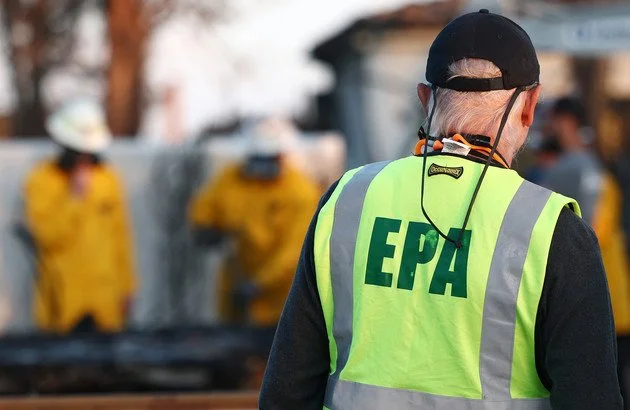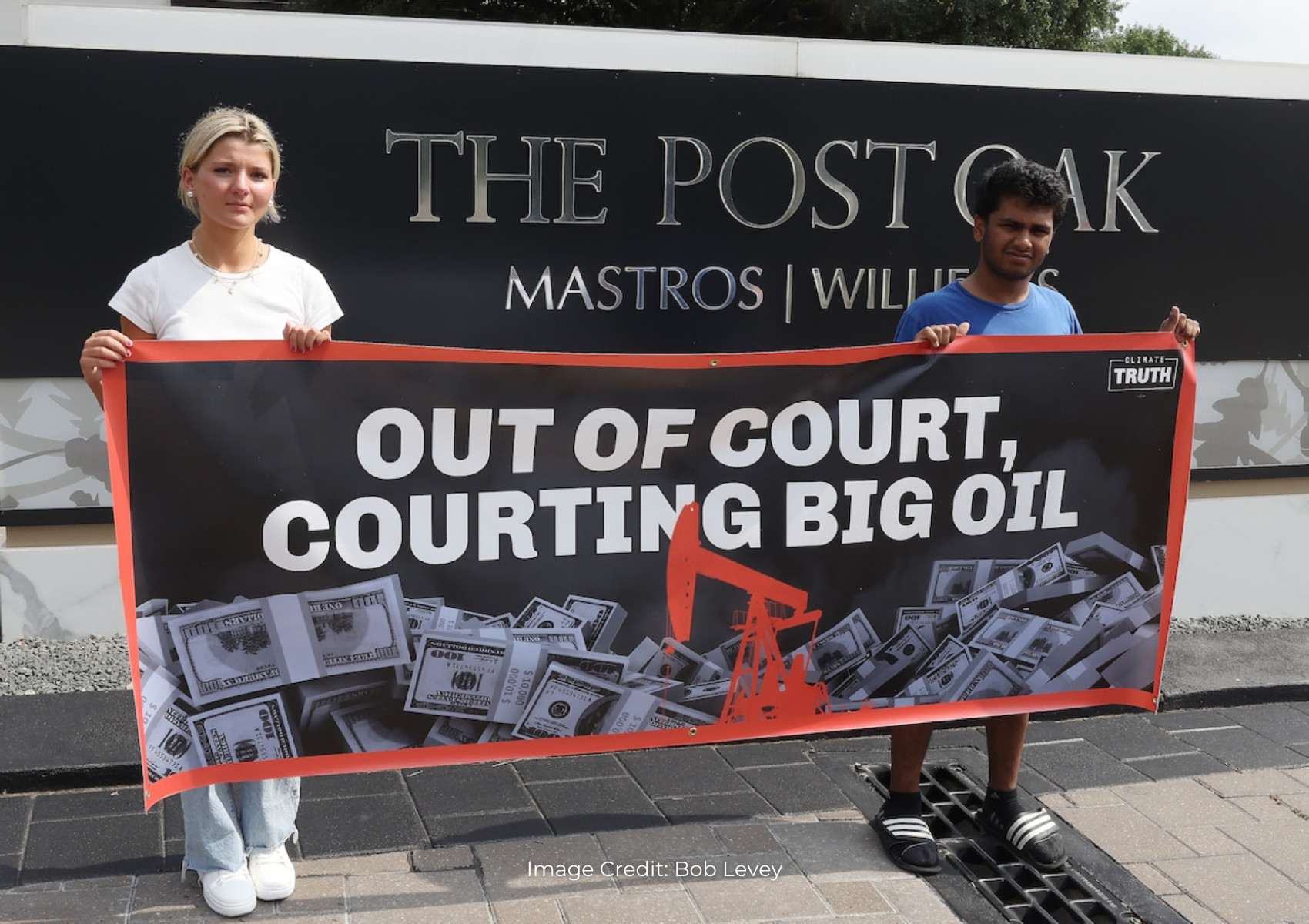
Research & Publications
Policy Briefs
Change the Chamber publishes policy briefs that outline policies, bills, court cases, etc. in layman’s terms for a general audience, who may not have a political or legal background. They are typically used by legislators and executives, but this format is helpful for people looking for a straightforward summary.
News and Research
(March 20, 2025) The overuse of ocean resources is causing significant environmental damage, threatening marine ecosystems worldwide. Emerging technologies like Autonomous Underwater Vehicles (AUVs) are helping monitor and protect artificial reefs, offering hope for the restoration and preservation of these vital ecosystems.
(March 14, 2025) The young adults and student groups of Change the Chamber are appalled by the Trump Administration’s recent attempts to slash critical environmental and public health protections within the Environmental Protection Agency (EPA).
(March 13, 2025) Today, thousands of Indigenous people “are caring for the land and are powerful leaders advocating for clean water and healthy, free-flowing rivers.”
(March 13, 2025) A government shutdown is not an ideal outcome, but passing a CR that ignores the urgent need for climate action and government accountability would be an even greater harm to the American people.
(March 5, 2025) Change the Chamber strongly condemns the administration’s blatant assault on clean energy, environmental justice, and critical climate investments—actions that threaten to set our country on a dangerous path.
(March 3, 2025) Wind power accounts for more than 10 percent of the electricity generated in the U.S., supporting both the environment and job creation in the green energy sector. Despite misinformation suggesting otherwise, studies confirm that offshore wind energy is a dependable resource that poses no real threat to marine wildlife and can even help enhance ocean habitats.
(February 28, 2025) Change the Chamber urges policymakers to reject this dangerous rollback and instead advance solutions that protect public health, support economic growth, and ensure a sustainable future for all.
(February 27, 2025) Beyond the direct human toll of the war, this conflict is causing disastrous environmental conditions, including many conditions that cannot be reversed.
(February 26, 2025) The Senate budget resolution passed last week and the House budget resolution approved yesterday would severely undermine efforts to protect public health, build climate resilience, and transition to a clean energy economy.
(February 20, 2025) AI could be used in many ways to benefit us all, but without regulation and a focus on sustainable improvement, the damage AI will create will be detrimental.
(February 16, 2025) California’s state network of first responders includes over two thousand inmate firefighters who frequently put themselves in harm’s way to fight ever-increasing wildfires. These inmate firefighters are severely underpaid, and face a disproportionately dangerous job compared to civilian firefighters.
(February 6, 2025) As climate issues indiscriminately wreak havoc across all fifty states, the impacts of this decision will be detrimental to all Americans, especially to frontline communities that experience some of the highest rates of pollution and climate damages in the country.
(January 22, 2025) Across the country, thousands of harmful and inaccurate place names identify our outdoor spaces and geographic regions, often bearing terms used to degrade minority groups.
(January 20, 2025) Change the Chamber is deeply disappointed in the announcement of executive actions taken today by the Trump administration that weaken our nation’s progress on climate, sustainability, and environmental protection.
(December 18, 2024) By creating government infrastructure and tailored policies that define, fund, support, and enable the next generation of social entrepreneurs, we can not only continue building more inclusive and sustainable socio-economic systems, but redefine the role of business as an agent of social change in our society.
(December 18, 2024) The threats to electricity-dependent people with disabilities by both natural hazards and a strained national grid are quite clear. These individuals are subject to a host of hazards that may seem a mere inconvenience to the able-bodied, but compromise the safety, security, and independence of people with disabilities.
(October 30, 2024) Gen Z currently accounts for 26 percent of the global population, so we will be the catalyst pushing companies and investment product issuers to take serious steps towards implementing ESG policies.
(October 29, 2024) The evidence is clear. Climate change already profoundly impacts our schools, and the situation will only worsen if we do not take immediate action.
(September 22, 2024) Hispanic Heritage Month is a celebration of resilience, creativity, and the enduring impact of Hispanic and Latino communities.
(September 22, 2024) Environmental conflicts and climate change are exacerbating the already critical condition of water infrastructure in [Kenya].
(September 5, 2024) My story, like that of many others from my community, is one of resilience, determination, and hope— a journey that drives me to seek support for building a better future.
(August 7, 2024) Taking proactive measures to address climate change is crucial to ensuring the long-term well being of the economy and the environment.
(August 6, 2024) The Public Lands Ruling is a crucial step forward for tribes and the environment alike. But what is this ruling and why does it matter?
(August 5, 2024) The forests of the Rocky Mountains are not just a regional treasure; they are a vital component of the American ecosystem and economy.
(July 29, 2024) National Climate Fellow Manushi Sharma shares her experience presenting alongside teammate, Tony Passino, during the Natural Hazards Center's 49th Annual Conference.
(July 23, 2024) If we continue to allow politicians who will sell their opinions to the highest bidder and ignore climate needs into office, we will no longer have a world to live in…
(July 1, 2024) Offshore wind energy stands as a promising alternative to meet the nation's energy demands, but its integration should prioritize a symbiotic relationship with the existing marine ecosystem.
(June 16, 2024) Overfishing, acidification, climate change, pollution, and habitat destruction threaten lemon sharks around the world. All of the lemon shark’s major threats are human-created and must be human-ended.
(June 16, 2024) A large-scale shift in the very nature of our economy is … necessary to promote sustainability, and worker-owned cooperatives may provide the key to such a change.
(June 11, 2024) What started as a simple recycling campaign around Atlanta Montessori International School transformed into a complex yet fascinating interdisciplinary web underpinning the route to global sustainable development.
Calling Out the U.S. Chamber
-

2023 Report
Our latest report, spanning from September 1998 to March 2023, exposes how the U.S. Chamber of Commerce has consistently prioritized its own gains at the expense of fair treatment for minority populations, the preservation of our environment, and timely climate change mitigation.
-

2021 Report
Our report lays out a timeline of actions executed by the U.S. Chamber and its subsidiaries to oppose policy measures that would help mitigate the rapidly escalating crises of climate change and biodiversity collapse.
-

2020 Report
We analyzed the Chamber’s activity from 2019 to 2020 and found that the U.S. Chamber has been a relentless and effective advocate for the interests of the fossil fuel industry.
U.S. Chamber Litigation Timeline
In the courts, the U.S. Chamber Litigation Center regularly champions the fossil fuel industry. They provide legal support for oil pipelines such as the Dakota Access Pipeline, they fought to allow drilling in the Arctic and the Gulf of Mexico, and they regularly undermine local and state government attempts to regulate polluters. To learn more, click on the right arrow below (or swipe left on mobile).
-
![]()
2019-2020
The Chamber is gearing up to defend the Trump Administration’s replacement of the Clean Power Plan, the Affordable Clean Energy plan, in court.
ACE has substantially lower GHG emissions reductions than the Clean Power Plan, putting the US’s emissions on a track consistent with 4°C+ warming by 2100 warming globally.
-
![]()
2019
The Chamber filed two briefs to protect Shell Oil and Suncor Energy from litigation by local governments in Colorado and Rhode Island who were suing to hold the companies liable for climate change.
The briefs were filed in two Federal Appeals Courts to reverse the remand orders and to have the cases taken out from the District courts.
-
![]()
-
![]()
2017
The Chamber filed a brief in a case against 18 states and 2 cities, who were protecting an EPA rule requiring new coal-fired power stations capture a percentage of their emissions with carbon capture.
This helped secure the building of a new generation of coal-fired power plants.
-
![]()
2017
In 2017, the Bureau of Land Management repealed a rule that required hydraulic fracturing operations on Federal and Indian lands to follow certain standards, including methane leaks, and waste water disposal.
We can thank the Chamber for helping to sue to make that happen!
-
![]()
2016
The Chamber filed a brief against the EPA’s Clean Power Plan, arguing that it “unlawfully attempts to radically transform the electric sector and usurp states’ traditional authority over the electric grid.”
The Chamber won: the U.S. Supreme Court suspended the Clean Power Plan.
-
![]()
2016
As soon as President Obama announced that he would limit offshore gas & oil drilling in Alaska, the Chamber threatened to sue the administration.
The Chamber followed up by asking President Trump to undo the regulation. It worked.
-
![]()
2015
The Chamber filed a lawsuit challenging the EPA’s new Ozone Standard. The new standard was based on thousands of new studies that had been published since the last review in 2008. It limited ground-level ozone to 70 parts per billion. Ozone causes harm to the respiratory system, and aggravates asthma and other lung diseases. Higher levels of ozone disproportionately affects children, older adults, and outdoor workers.
-
![]()
2014
In 2014, the Chamber began to convene groups of fossil fuel industry lobbyists, lawyers, and political strategists to devise strategies to oppose future regulatory actions that might limit greenhouse gas emissions.
The litigation began that year. Two years, later the Chamber boasted about its leadership role in killing the Clean Power Plan in an op-ed.
-
![]()
2011
In 2011, the US Chamber helped sue to make a special exception to expedite oil & gas exploration in Polar bear habitats.
-
![]()
2011
The Chamber filed a brief urging the US court of Appeals to reject a challenge to the federal offshore permitting process that would have halted offshore oil and natural gas exploration in the Gulf of Mexico.
This was less than a year after the Deepwater Horizon oil spill in 2010.
-
![]()
2010
The Chamber sued the EPA for trying to regulate car emissions.
-
![]()
2009
The Chamber tried to set up the “Scopes monkey trial of the 21st century,” to discredit climate science so as to put off science-based climate legislation.
The Chamber filed to sue the EPA for saying that climate change is caused by humans. They used absurd, pseudo-scientific language. There is an overwhelming consensus among climate scientists that climate change is human-made.










































